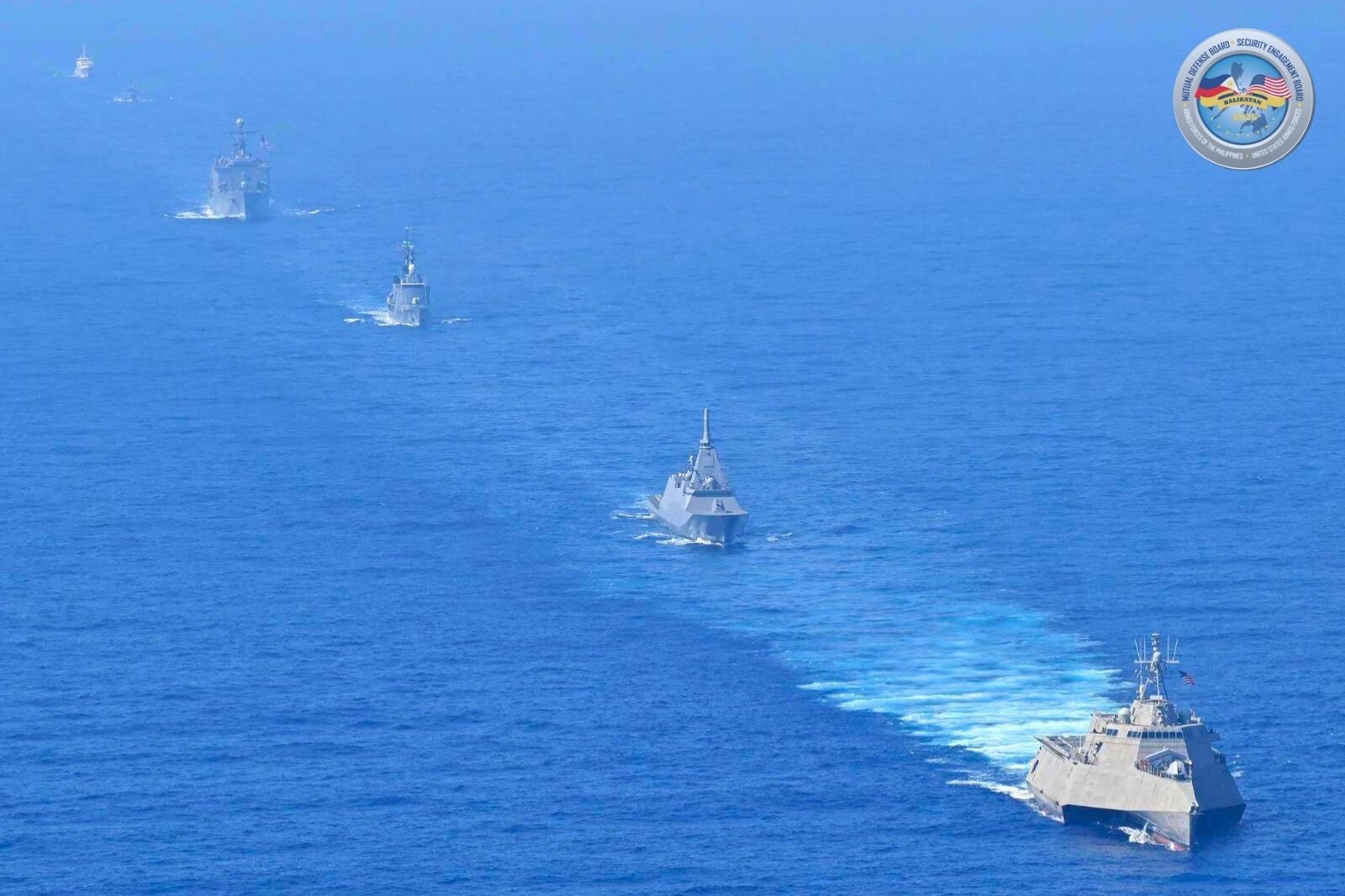The case of the Philippines: A masterclass in strategic collaboration

Building partnerships and reinforcing strategic collaboration, in both the domestic and international levels, are foundational principles that guide the Philippines as it navigates the current geopolitical landscape.
This strategy, increasingly employed by the current administration, reflects an assertive and constructive approach to foreign relations, sparking renewed confidence among like-minded partners.
The 40th iteration of the Balikatan Exercises perfectly illustrates the Philippines’ strategy. Translated in English, Balikatan means shoulder-to-shoulder. It depicts an image of two comrades working as equals to achieve the same goals and objectives. For the Philippines and the United States, the Balikatan Exercises is an annual representation of their ironclad alliance.
This year’s exercise is the largest to date, both in scale and strategic importance. What was once a bilateral military exercise between two countries has now evolved into one of the largest military exercises in the Indo-Pacific.
In terms of scale, this year’s exercise involves the participation of more than 17,000 personnel from 20 nations. These include troops from Japan and Australia, alongside observers from Brunei, Canada, France, Germany, India, Indonesia, Malaysia, New Zealand, Republic of Korea, Singapore, Thailand, United Kingdom and Vietnam.
Four European countries are also observing for the first time including the Czech Republic, Lithuania, the Netherlands and Poland. The participation of these countries shows the high regard placed on the Philippines and its contributions to ensuring security and stability of the world order.
So far, we have seen the “full-scale battle test” among nations, with activities across four domains of operations: land, air, sea, and cyber.
Advanced weapons systems have been deployed including the Navy-Marine Expeditionary Ship Interdiction System (NMESIS) in the Northern part of the Philippines as part of the Maritime Key Terrain Security Operations. The NMESIS’ versatility, being a land-based missile system that can also hit naval targets, enhances both territorial and maritime defense capabilities of the two allies.
The Philippine Navy also exhibited its capabilities with the deployment of its C-Star cruise missile, considered one of its most advanced anti-ship weapons. In the western part of San Antonio, Zambales, the Philippine Navy successfully test-fired two Mistral 3 surface-to-air missile (SAM) systems aboard BRP Jose Rizal.
Another key highlight is the multilateral maritime event (MME) of the Philippines with the United States and Japan. The three nations, through their respective naval and coast guard forces, demonstrated interoperability and readiness through exercises such as communications drills, division tactics, photo exercises, replenishment at sea, and cross-deck landing qualifications among others. This MME marks Japan’s first-ever active participation in the annual drills, following the signing of the Reciprocal Access Agreement late last year.
This year’s annual exercise comes at a time of geopolitical shifts and tensions, with the West Philippine Sea as the main theater. It is a testament of the Philippines’ resolve to strengthen its external defense capabilities and the international community’s support in reinforcing a secure landscape.
The participation of these nations confirms the strategic importance of the Philippines. It substantiates pronouncements that underscore the collective commitment to uphold regional security and the rules-based order. It is an affirmation of friendship grounded in shared democratic principles, and an illustration of cooperation aimed at fortifying regional deterrence.
--
The Philippines also welcomed Japanese Prime Minister Ishiba Shigeru for a state visit. The visit underscores commitment to strengthen the strategic partnership of the two countries, which encompasses multiple sectors.
Described as the “golden age” of Japan-Philippines diplomatic relations, the strategic partnership offers a wide array of opportunities for cooperation.
On defense, the two countries agreed to initiate discussions for an Acquisition and Cross-Servicing Agreement. This will allow the exchange of logistical support, supplies, and services of the two nations’ armed forces. The new pact is projected to further enhance interoperability and reinforce logistical support during joint exercises, trainings, and humanitarian assistance and disaster relief activities.
On economy, discussions focused on strengthening public-private partnerships. Priority areas include boosting connectivity through participation in a submarine cable project and the construction of a 5G telecommunications network, expanding liquefied natural gas facilities and establishing a resilient energy supply chain, supporting the development of flood control mechanisms, working closely on agriculture products, and enhancing cooperation for infrastructure development.
There is no doubt that Japan is truly a reliable partner of the Philippines. This partnership is even more relevant as both countries face asymmetric security challenges.
--
New Zealand Defense Minister Judith Collins was also in the Philippines last week for another extremely important milestone. The Philippines and New Zealand signed the Status of Visiting Forces Agreement which establishes a framework for military cooperation between the two countries.
More specifically, the agreement will enable the Armed Forces of the Philippines and the New Zealand Defence Force to engage in joint activities and exercises. This milestone reflects the further deepening of bilateral ties and underscores the shared commitment to stability.
--
The Philippines has never before seen this much diplomatic and military engagement. Finally, the country is making much-needed strides to strengthen partnerships and enhance interoperability and operational readiness. These engagements are increasingly significant as Manila bolsters its external defense capability as part of efforts to safeguard the West Philippine Sea and defend the rules-based order.
Clearly, the current administration is taking decisive action to position the Philippines as a strategic and responsible security partner. As the Philippines maintains this momentum, it is crucial to ensure that the country’s national interests are at the core of all engagements, with a strong emphasis on upholding international law.
Katrina Guerrero is the program and research manager for defense and security at think tank Stratbase Institute.
- Latest




























